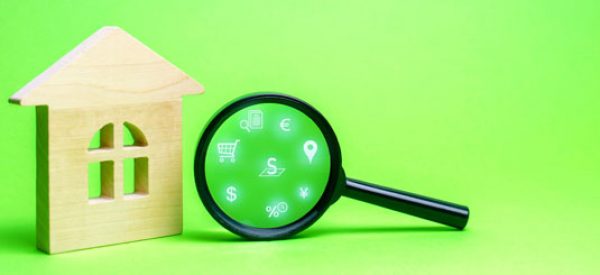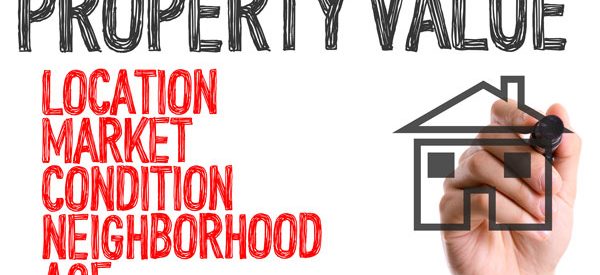


GET 3 FREE SUBMISSIONS OF ACCREDITED RESIDENTIAL APPRAISERS
Why you need a Home Appraisal before buying a house

A home appraisal before buying a house is very important. It ensures you don’t pay more than the value of the property. It can also identify potential problems such as zoning issues.
If you are taking out a mortgage, your lender will also require a home appraisal to determine the market value. Appraisers will inspect the property and compare it with similar homes in the area. This helps the lender know how much you can borrow for your mortgage.
A home appraiser will check the plot, location, square footage, and amenities of the property against the home value. The goal is to determine the fair market value of the property.
You need to ensure that you engage an experienced and trustworthy home appraiser. The results of his report can help you negotiate the selling price to your advantage.
Find out more about home appraisals and how you can hire the best professional by
filling out the short form on this page.
Compare free and no-obligation quotes to save time and money!
Benefits and importance of a home appraisal

What are the benefits of a home appraisal and why is it important? If you are buying a house, it is important to know the fair market value of the property. This determination will allow you to back out of a sale, negotiate the selling price, or enter into your real estate transaction with full knowledge of its worth.
Generally, the report of a home appraiser will include:
· Details about the value of the home and how it was determined
· An explanation of the local real estate market
· Characteristics or features of the property including its size, condition, and any improvements
· Other factors that may affect the home value
· Defects or structural problems
It is important to understand that a home appraiser is not the same as a home inspector. His job is not to identify structural issues or to look for them. Rather, his job is to find the value by comparing it with other properties in the neighborhood that were sold recently.
A home appraiser will also consider the “replacement cost” which is the cost to replace the home and the “rental schedule” which refers to rental income.
According to the Canada Mortgage and Housing Corporation (CMHC), determining the true value of a property before purchasing a house is a crucial step in the mortgage application process.
How do appraisers determine the value of the home?
Several criteria are used by a professional appraiser in assigning the value of a property. As mentioned earlier, the square footage, age and condition of the house, location, the quality of its construction, and the features or amenities influence how much a home is worth.
There is no permanent or fixed number for a property valuation. Rather, it is an estimate of the property’s worth based on market conditions and how much similar properties have sold for.
This price can change in a few months or years based on the trends in the neighborhood, improvements done over time, and economic conditions.
A professional appraisal will study the functional and physical characteristics of the home. Thus, the homeowner has to provide access to the appraiser and answer questions about the property.
What do home appraisers look at during a home appraisal?

Home appraisers determine the home value by considering many factors. Understanding these elements will also allow you to make a smart decision. If you are a seller, this knowledge will help you prepare the property for appraisal and increase your chances of getting a positive result.
Your home appraiser will compare the home with similar ones in the neighborhood. He will note the size and condition of the home. He will note the interior and exterior size, upgrades, maintenance, and the age of major components such as the roof. He will consider the property’s location and its desirability.
The home’s general condition: The appraiser will assess the materials used in the home, the home’s condition, and physical aspects that may be damaged and affect its suitability for living in. Are there structural defects, missing door handles, leaks, or other maintenance problems?
The appraiser will not really focus on the home’s cleanliness but he will look for signs of neglect like defective windows, cracked walls, damaged floors, peeling paint, etc.
The age of the home: Appraisers consider the age of the home when determining its value. Newer homes generally get a higher value than older homes.
The home’s location: The appraiser notes the home’s location and this plays a very crucial part in determining its value. A home’s proximity to good schools, hospitals, police and fire stations, and other important establishments can increase the value of a property. Is it a neighborhood of owner-occupied homes, tenant-occupied homes, or suburban or rural?
Your neighborhood’s crime rate and proximity to busy roads or foreclosed properties also affect home value.
The home’s interior: The appraiser will spend more of his time checking the interior of the home. He will note the number of bedrooms, bathrooms, and if there is a crawl space, attic, or basement. He will note the finishing materials for the walls, floors, and the windows. Of course, it also matters whether the basement is finished or unfinished. Signs of neglect such as leaking faucets, broken windows, and visible electrical issues will have a negative impact on the appraisal report.
The home’s exterior: The appraiser will determine the structural soundness of the home. He will look for signs of water damage and problems such as a lopsided porch, leaning chimney, cracks in the foundation, etc.
The quality of the roof also greatly impacts the home’s resale value. He will also inspect the condition of the siding, deck, and other exterior parts of the home.
The square footage of the home:
Appraisers also consider similar homes in your area. They will note the square footage, number of bedrooms and bathrooms, and use this information to determine the value. They will note the size of the lot. The size of your garage and the absence of one also affects home value. A house with a 2-4 car garage will have a higher value than a 1-car garage or none at all.
The home’s design: A home that looks outdated is harder to sell because it appeals to fewer buyers. An appraiser will take this into account.
Comparables: Appraisers use data about properties similar to yours in the neighborhood that were sold recently. Their selling price will affect the resale value of your home.
Infestation issues: The appraiser will look for signs of termites and rodents which could cause damage to the structure.
Improvements: The appraiser will also consider if the home has been recently renovated. Energy-efficient systems or appliances are big advantages. Some home improvements increase the value of a property while others don’t. For instance, a centralized air-conditioning system puts a higher value on the home than individual units in every room.
Appraisers also note if your home uses oil, gas, or electricity for heating. Additional upgrades such as hardwood flooring, new siding, or new windows also affect the appraisal.
Water damage: One of the most critical elements that appraisers look into is water damage. This can result in mildew, mold, rotting, and other problems. He will check the basement for water damage, roof leaks, plumbing issues, and ceilings, floors, and walls for stains.
Safety features: The presence of safety features like handrails on staircases and smoke detectors, among others, are also noted by an appraiser.
A homeowner planning to sell the house can request a home appraisal. The report will guide the owner in setting a fair selling price. For homebuyers, lenders typically request an appraisal when you apply for a mortgage and the fee is charged to you. Homeowners wanting to refinance can also request an appraisal to know how much they can borrow.
FAQs about home appraisals, fees, and the process

Applying for a mortgage when you are buying a new home or if you are refinancing can be a daunting experience. A home appraisal is necessary when planning a mortgage.
We have gathered important FAQs to guide you in planning your project and help you save time and money.
Who conducts a home appraisal?
An appraiser is a licensed professional working independently from mortgage brokers, lenders, buyers, or sellers. He is a neutral party who will be responsible for providing an unbiased and reasonable appraisal of the home.
Are home appraisals the same as home inspections?
While similar in a way, home appraisals and home inspections have different purposes or functions.
Most buyers have a contingency clause in their offer to purchase a home which allows them to back out in the event of a negative home inspection report. A home inspection can also allow them to negotiate the selling price in light of defects of deficiencies. A seller can agree to a lower price to compensate the buyer the cost of repairs. Thus, the main purpose of a home inspection is to determine the actual condition of the home.
In contrast, the purpose of a home appraisal is to determine the fair market value of the home based on its location, age, condition and comparable final sale prices of other homes in the area that were recently sold. It is usually required by lenders to know how much you can borrow for your mortgage.
It is important to note that an appraised market value can be different from a seller’s asking price. The buyer or his representative can negotiate with the seller based on the appraisal report.
What will happen if your home gets a low appraisal?
If the appraised value is lower than expected, the seller may agree to a lower selling price. However, if the real estate market is strong and demand for such homes is high, the seller may be confident about finding other buyers. If this is the case, the homebuyer may have to back out or increase his down payment based on the bank’s requirements. Lenders put a lot of stock in home appraisal reports and will base their decisions on it.
How long does a home appraisal take?
A home appraisal can last less than an hour or a little over an hour. The appraiser will take photos of the property and will measure areas of the home. He will also make note of its overall condition and other noteworthy aspects.
How much is a professional home appraisal?
Home appraisers can charge from $300 to $500 depending on the size of the home, location, and other factors.
A homebuyer usually pays for the cost of a home appraisal but it is the lender that orders it or looks for a home appraiser. Even if the sale does not push through, for whatever reason, the lender will not reimburse the home appraisal fee.
How should you prepare for a home appraisal?
It is difficult, if not impossible, to change the results of a home appraisal but there are things you can do to ensure it goes smoothly and increase your chances of getting a positive report. Curb appeal has an impact so you can spend some time on improving the home’s exterior appearance and landscaping. Check for yourself what defects an appraiser might see – faulty door handles, broken windows, missing tiles, etc. and try to fix these issues before the home appraisal.
What is included in an appraisal report?
An appraisal report will usually include photos of the interior and exterior of the home, details of the property (area, rooms, lot size, etc.), maps and plans for the property, recent comparable sales in the neighborhood, and an estimate of the fair market value of the property.
What type of home renovations increase home value for a home appraisal?
Some home improvements add more value than others. Kitchen and bathroom improvements increase value significantly. Putting in a new pool or finishing a basement costs more than the value it will add to the resale price.
According to the Appraisal Institute of Canada (AIC), the top 5 renovations to maintain or improve home value are:
· Roof replacement
· Cooling and heating system upgrade
· Windows and Doors replacement
· Electrical upgrades (panel, fixtures, sockets, etc.)
· Repairs to structural defects
Schedule a home appraisal before listing your property or for buying a house
using our short online form.
Receive competitive quotes from licensed home appraisers, free of charge!
Find top home appraisers for buying or selling a home

Our network of home professionals include licensed home inspectors in Ontario, Quebec, and throughout Canada.
You can find the right home appraiser for your needs by simply filling out the short online form below.
Our partner appraisers will be happy to send you FREE and NO COMMITMENT quotes that you can compare and choose from.
A home appraisal is the right step to take when you are planning to sell your house, refinance your mortgage, or buy a new home.
At Compare Home Quotes, you can find the best professionals for your home projects to save time and money.
Comments are closed.



GET 3 FREE SUBMISSIONS OF ACCREDITED RESIDENTIAL APPRAISERS
Copyright© 2025 Compare Home Quotes.
Oolong Media






